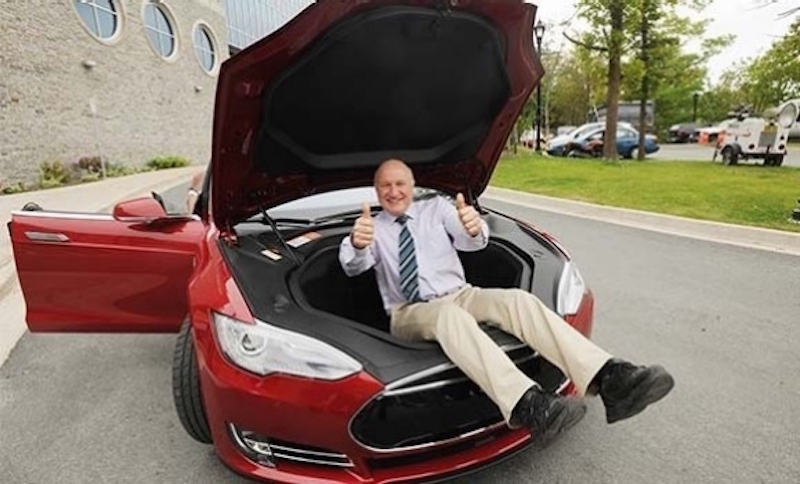
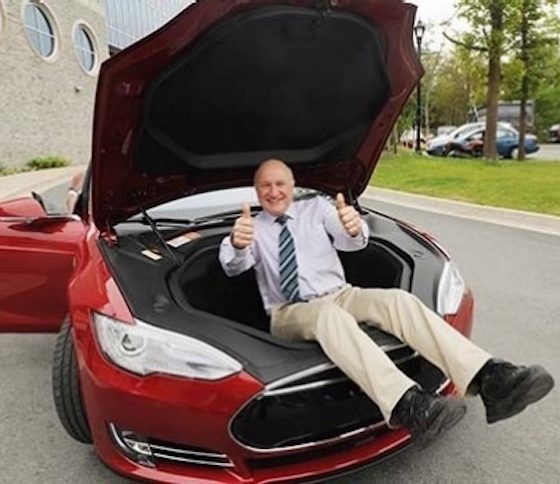
Energy
Tesla donates $3.1M of $6M grant to Jeff Dahn’s Dalhousie University battery team
A team of battery researchers at Canada’s Dalhousie University are the recipients of a $6 million grant from the Natural Sciences and Engineering Research Council (NSERC). The NSERC will give the team, headed by Dr. Jeff Dahn, $2.9 million in funding. Tesla, who has worked very closely with Dahn’s team, will also contribute an additional $3.1 million to help develop advanced batteries from electric cars and grid energy storage.
Dahn and Tesla have worked together since 2016 when the two signed a five-year partnership to improve energy density and the life cycle of lithium-ion batteries. Tesla and Dahn signed another five-year contract earlier this year. Dahn has worked with batteries for around 40 years and has published over 700 papers related to battery technology.
Dahn has even been listed as an author on several Tesla battery patents, including one for an electrolyte solution that could be added to lithium-ion cells to extend longevity and increase performance.
Tesla renews contract with Jeff Dahn’s battery team at Dalhousie University
Dalhousie University expanded its team in January upon the five-year extension with Tesla. The institution added Dr. Chongyin Yang as the Tesla Canada Chair and Dr. Michael Metzger as the Herzberg-Dahn Chair to supplement Dahn’s experience and ensure that Dalhousie remains a global force in battery tech advancements.
The $6 million in funding will be used for several new projects that include:
- Lowering the costs of batteries for electric vehicles and electrical energy storage applications
- Increasing the lifetime of batteries for electric vehicles and electrical energy storage applications
- Increasing the energy density of batteries for electric vehicles and electrical energy storage applications
- Maintaining and improving the safety of batteries for electric vehicles and electrical energy storage applications
- Increasing the content of sustainable materials in the batteries
If Dahn’s team of researchers at Dalhousie University can achieve these goals, it would not only revolutionize EV and energy storage batteries but would also make renewable energy and Earth-friendly transportation more accessible and affordable.
Dahn spoke highly of the funding and was very appreciative of the grant that will catalyze the opportunity for more battery research. “I am very grateful for this funding from NSERC and Tesla,” Dahn said. “This will allow Chongyin, Michael, and me to solve many remaining puzzles that will help improve battery lifetime and lower cost. The students trained in this program are finding, and will continue to find, immediate employment in the advanced battery sector locally and around the world. Tesla is a wonderful partner and a world leader in electric vehicle, solar, and electrical energy storage products. We share their commitment to help combat climate change through electrified transportation and renewable energy generation and storage.”
Tesla and Dahn are contractually tied until 2026.
“With a distinguished career in innovative thinking, fundamental science, and strong industry partnerships, Dr. Jeff Dahn exemplifies research excellence,” Dr. Alice Aiken, Vice President of Research and Innovation at Dalhousie, said. “And we are incredibly fortunate to have two world-class scientists like Dr. Chongyin Yang and Dr. Michael Metzger join Dalhousie University and the exclusive partnership with Tesla.”
Tesla also showed its excitement for the Dalhousie team. “We are thrilled for our work with Dalhousie, Dr. Jeff Dahn, Dr. Chongyin Yang and Dr. Michael Metzger,” Tesla said in a statement. “We are excited and look forward to their important contributions in battery technology to help achieve our mission.”
What do you think? Let us know in the comments below, or be sure to email me at joey@teslarati.com or on Twitter @KlenderJoey.

Energy
Tesla starts hiring efforts for Texas Megafactory
Tesla’s Brookshire site is expected to produce 10,000 Megapacks annually, equal to 40 gigawatt hours of energy storage.
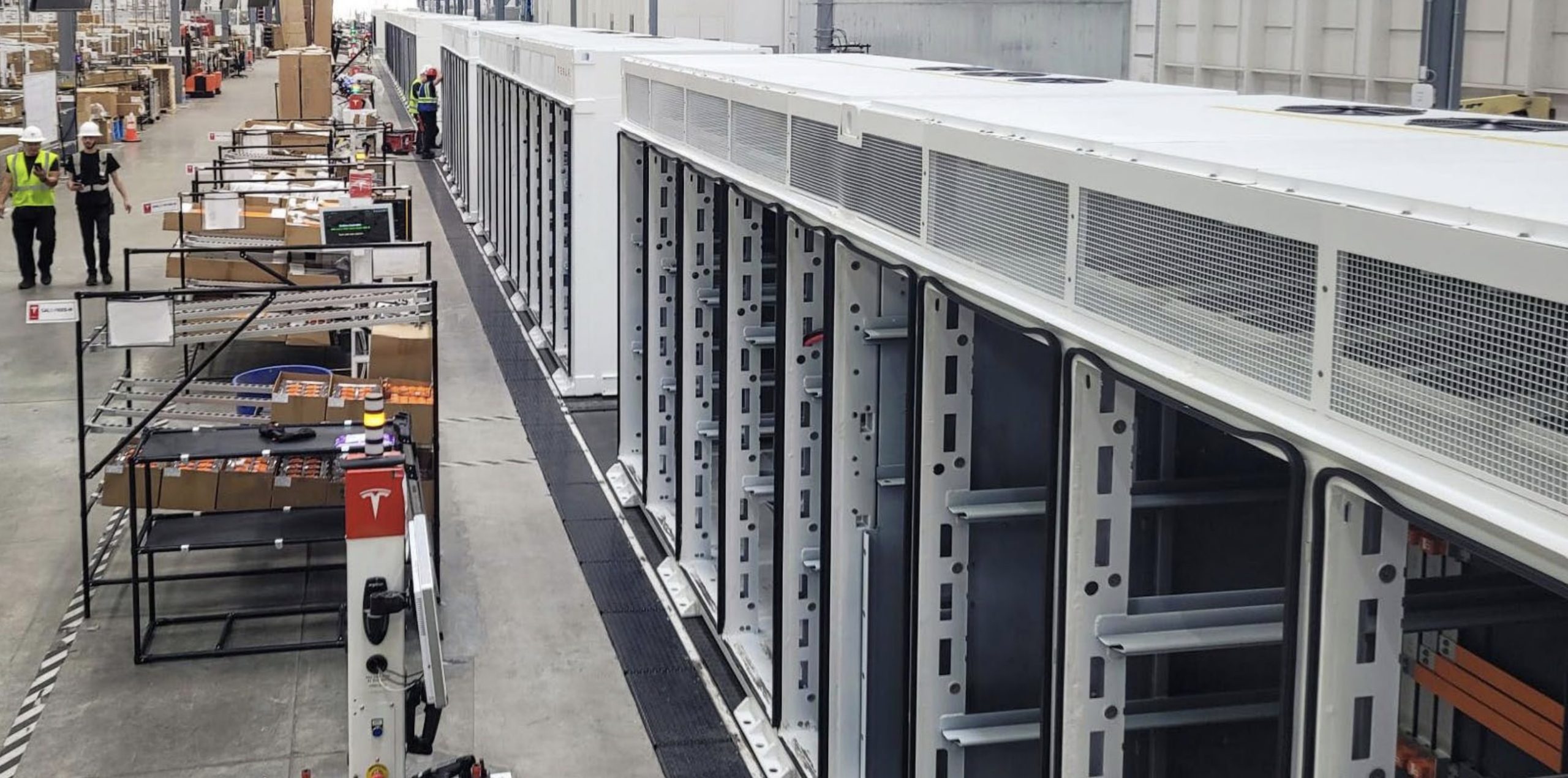
Tesla has officially begun hiring for its new $200 million Megafactory in Brookshire, Texas, a manufacturing hub expected to employ 1,500 people by 2028. The facility, which will build Tesla’s grid-scale Megapack batteries, is part of the company’s growing energy storage footprint.
Tesla’s hiring efforts for the Texas Megafactory are hinted at by the job openings currently active on the company’s Careers website.
Tesla’s Texas Megafactory
Tesla’s Brookshire site is expected to produce 10,000 Megapacks annually, equal to 40 gigawatt hours of energy storage, similar to the Lathrop Megafactory in California. Tesla’s Careers website currently lists over 30 job openings for the site, from engineers, welders, and project managers. Each of the openings is listed for Brookshire, Texas.
The company has leased two buildings in Empire West Business Park, with over $194 million in combined property and equipment investment. Tesla’s agreement with Waller County includes a 60% property tax abatement, contingent on meeting employment benchmarks: 375 jobs by 2026, 750 by 2027, and 1,500 by 2028, as noted in a report from the Houston Business Journal. Tesla is required to employ at least 1,500 workers in the facility through the rest of the 10-year abatement period.
Tesla’s clean energy boom
City officials have stated that Tesla’s arrival marks a turning point for the Texas city, as it highlights a shift from logistics to advanced clean energy manufacturing. Ramiro Bautista from Brookshire’s economic development office, highlighted this in a comment to the Journal.
“(Tesla) has great-paying jobs. Not just that, but the advanced manufacturing (and) clean energy is coming to the area,” he said. “So it’s not just your normal logistics manufacturing. This is advanced manufacturing coming to this area, and this brings a different type of job and investment into the local economy.”
Energy
Tesla and Samsung SDI in talks over new US battery storage deal: report
The update was related by industry sources and initially reported by South Korean news outlets.
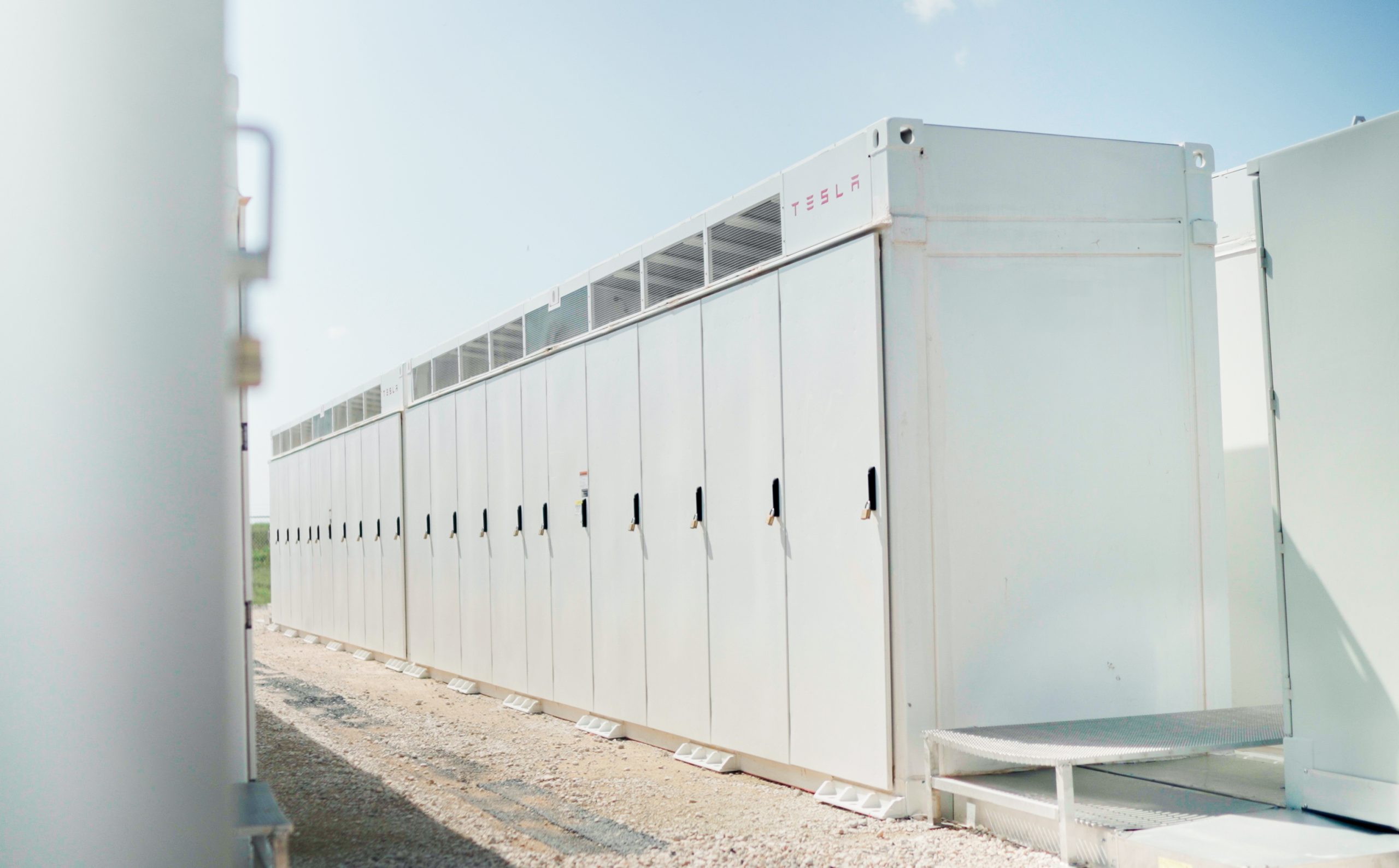
Recent reports have suggested that Tesla and Samsung SDI are in talks over a potential partnership to supply batteries for large-scale energy storage systems (ESS).
The update was related by industry sources and initially reported by South Korean news outlets.
ESS batteries to be built at Samsung’s Indiana plant
As noted in a report from Korea JoongAng Daily, the demand for energy storage systems has been growing rapidly in North America, thanks in no small part to the surge in AI investments across numerous companies. With this in mind, Tesla has reportedly approached Samsung SDI about a potential battery supply deal.
The deal is reportedly worth over 3 trillion Korean won (approximately $2.11 billion) and will span three years, according to The Korea Global Economic Daily. A battery supply deal with Samsung SDI could make sense for Tesla as the company already has a grid-scale battery, the Megapack, which is perfect for industrial use. Samsung SDI could simply supply cells for the EV maker.
Production of the batteries would reportedly take place at Samsung SDI’s joint venture factory with Stellantis in Indiana, which is currently under construction. Samsung SDI recently announced plans to use part of that plant’s EV lines to produce cells for ESS, with a targeted capacity of 30 GWh by the end of next year.
Tesla and Samsung’s partnership
At present, only a handful of manufacturers, including Korea’s LG Energy Solution, Samsung SDI, SK On, and Japan’s Panasonic, are capable of producing energy storage-scale batteries domestically in the United States. A Samsung SDI official issued a comment about the matter, stating, “Nothing has been finalized regarding cooperation with Tesla.”
The possible energy storage system deal adds another layer to Tesla’s growing collaboration with Samsung, which is already in line as a partner in the upcoming production of Tesla’s AI5 and AI6 chips. Early sample manufacturing of the AI6 is expected to begin in South Korea, with mass production slated for Samsung’s Texas-based Taylor foundry when it starts operations.
The AI6 chip will power Tesla’s next wave of high-volume projects, including the Optimus humanoid robot and the autonomous Cybercab service. Musk has called the partnership with Samsung a “real collaboration,” adding that he personally plans to “walk the line” at the Taylor facility to speed up progress.
Energy
Tesla VP hints at Solar Roof comeback with Giga New York push
The comments hint at possible renewed life for the Solar Roof program, which has seen years of slow growth since its 2016 unveiling.
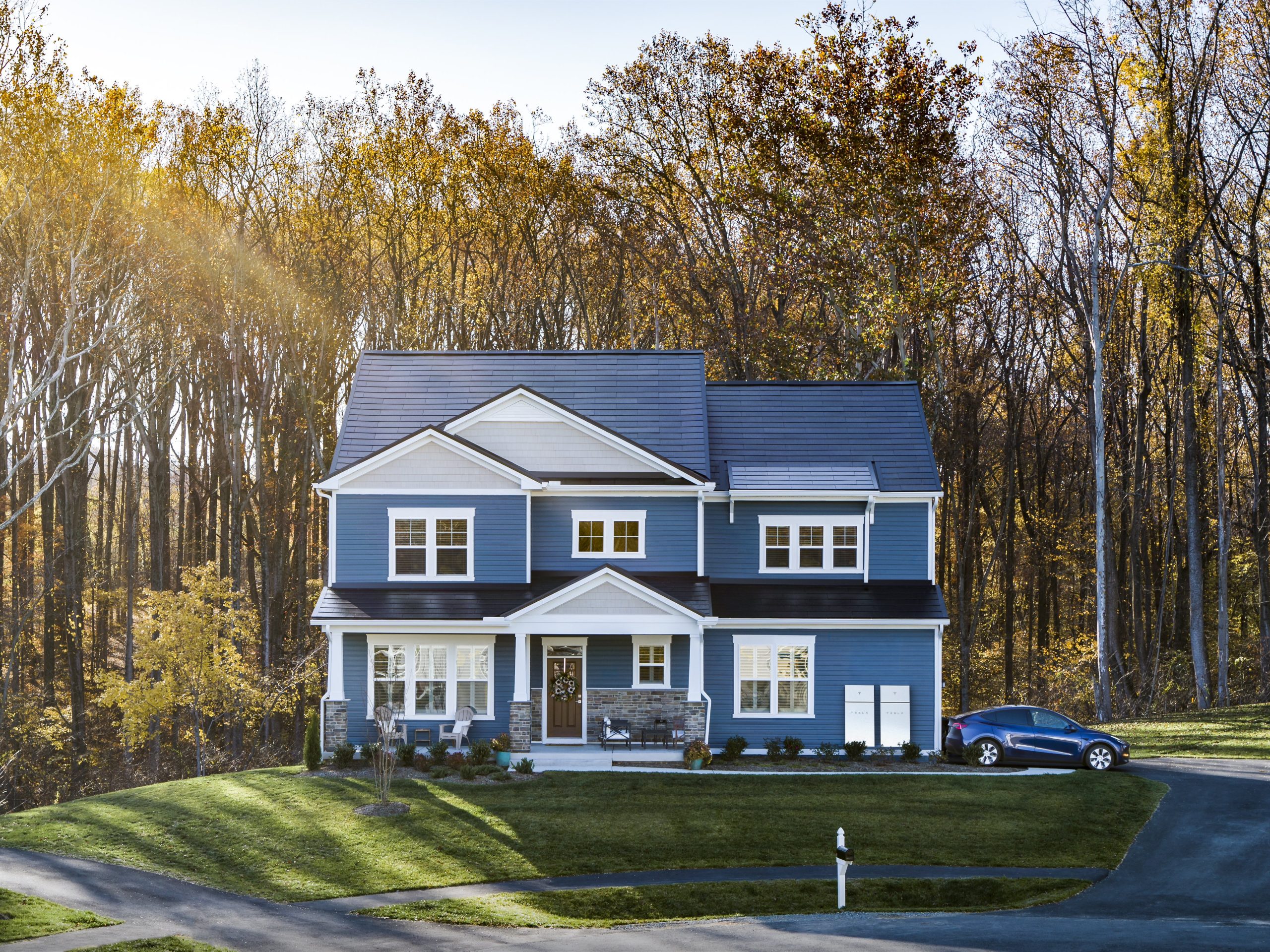
Tesla’s long-awaited and way underrated Solar Roof may finally be getting its moment. During the company’s Q3 2025 earnings call, Vice President of Energy Engineering Michael Snyder revealed that production of a new residential solar panel has started at Tesla’s Buffalo, New York facility, with shipments to customers beginning in the first quarter of 2026.
The comments hint at possible renewed life for the Solar Roof program, which has seen years of slow growth since its 2016 unveiling.
Tesla Energy’s strong demand
Responding to an investor question about Tesla’s energy backlog, Snyder said demand for Megapack and Powerwall continues to be “really strong” into next year. He also noted positive customer feedback for the company’s new Megablock product, which is expected to start shipping from Houston in 2026.
“We’re seeing remarkable growth in the demand for AI and data center applications as hyperscalers and utilities have seen the versatility of the Megapack product. It increases reliability and relieves grid constraints,” he said.
Snyder also highlighted a “surge in residential solar demand in the US,” attributing the spike to recent policy changes that incentivize home installations. Tesla expects this trend to continue into 2026, helped by the rollout of a new solar lease product that makes adoption more affordable for homeowners.
Possible Solar Roof revival?
Perhaps the most intriguing part of Snyder’s remarks, however, was Tesla’s move to begin production of its “residential solar panel” in Buffalo, New York. He described the new panels as having “industry-leading aesthetics” and shape performance, language Tesla has used to market its Solar Roof tiles in the past.
“We also began production of our Tesla residential solar panel in our Buffalo factory, and we will be shipping that to customers starting Q1. The panel has industry-leading aesthetics and shape performance and demonstrates our continued commitment to US manufacturing,” Snyder said during the Q3 2025 earnings call.
Snyder did not explicitly name the product, though his reference to aesthetics has fueled speculation that Tesla may finally be preparing a large-scale and serious rollout of its Solar Roof line.
Originally unveiled in 2016, the Solar Roof was intended to transform rooftops into clean energy generators without compromising on design. However, despite early enthusiasm, production and installation volumes have remained limited for years. In 2023, a report from Wood Mackenzie claimed that there were only 3,000 operational Solar Roof installations across the United States at the time, far below forecasts. In response, the official Tesla Energy account on X stated that the report was “incorrect by a large margin.”








